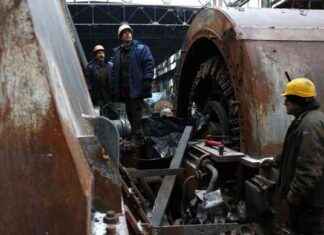The Ford factory in Almussafes, Valencia was awarded the new GE2 European electric vehicle platform. This is a major boost for the company. This is a mirror that shows the whole sector of Spain, and many communities are waiting for this type decision by big brands. Jesus Alonso is the CEO of the Spanish firm. He explains why this decision will alter the factory structure in light of the “irreversible emergence” of plug-in model.
What do you think of this award?
It means that the platform will enable the development of electric cars with the most advanced technology, as well as, logically speaking, all the connectivity needed by new products.
There are many details that remain to be determined, including the level of investment, economic resources and labor impact.
This is what we need to do from now on. What would be the new products that will go on this platform? We also need to adapt our labor requirements in an environment that will allow us to manufacture electric vehicles, which, as you know, requires less labor. This is a common feature in the production of any electric vehicle. We will need to create new labor structures.
-Why is it that Ford, a US-based company, chose Spain as its factory and not other parts of Europe?
– The selection process was very professional and focused on the data specific to each factory. Given this, it was obvious that there were all the labor issues and all the issues around the factory. Also, all the issues regarding the future direction and the approach of the local or national governments. However, the most important thing is that it wasn’t so much about the political issues but rather a professional selection of details. We have been blessed that we came out on top in data comparison.
Comment on the factor of labor legislation with the increased flexibility in the sector. What has it done to influence the foreign vision of Spain
It was, in fact, another option. We have a strong relationship with our workforce and the unions. We can accept that not all things can always be increased and that there is a way to reach an agreement that is both good for workers and for the company. This has been the case in Valencia, and again here.
What will this mean for the workforce?
We have to adapt because an electric car requires less labor than a combustion engine. We are currently working with unions to decide how to proceed.
Is it already impossible to stop the electric car’s arrival?
Yes, irreversible and unstoppable. We are going there. Ford is making a clear bet that we will soon get there. We want electric cars to be sold in Europe by 2030. In commercial terms, that means two-thirds of all vehicles must have zero emissions. This is what we are aiming for in our case.
They even foresee the EU goal, which is set for 2035.
We believe it is better for Ford and the customer as well as for our responsibility for the environment.
However, customers are still reluctant to purchase an electric vehicle.
Two factors are crucial. The first is to accelerate the implementation of recharging point. This is the most important priority today, as it is a factor that retracts during buying. The second is price. We are making decisions like this, where we will put all our strength into producing electric cars. This is a way to cut costs as quickly as possible.
-Any movement in Valencia’s factory has a tractor effect on the entire economy, particularly with local suppliers. Do they realize the importance of decisions like Ford’s
We are approximately 6,000 people, and the environment surrounding the factory could be as high as 25,000. We must also take into consideration the very high weight we have in exports to the Valencian Community and the participation in Gross Domestic Product. This is why we are happy to keep this driving force in place for the whole Valencian economy and, logically, also for the Spanish one.
The crisis that was caused by the shortage of semiconductors had brought about another obstacle for the automobile: rising costs and bottlenecks, which continue to derail deliveries.
What do you think of 2022’s evolution after the first half of the year?
-I think that it has been a year since the entire issue of covid was raised. The first part is still very much affected. The problem of shortage of semiconductors has continued to affect us since last year. However, it is still very much affecting us. Apart from all that, we have all the problems resulting from the war in Ukraine, and the increase in raw materials. We are now entering a changing environment. But I believe we will soon stop adapting. We are able to adapt to anything because we are human. In any event, I believe that we are managing, even though I see a decline in demand today, particularly at the private client level in recent months, for all of these reasons.
Demand is also affected by delays in new car deliveries.
Logically, that influences. We have also discovered that you don’t have to have the car in order to purchase it. However, people are more willing to wait. Unfortunately, some models are not available right now. This has meant that when people need the car urgently, they may consider buying a used model. We expect that the availability of the vehicle will improve over the next few month so that those who can’t wait to get it can do so as soon as possible.
– Do the prospects for slow improvement look good?
-Yes. This is my opinion. The whole system isn’t fixed. It’s improving, but it still affects us.








